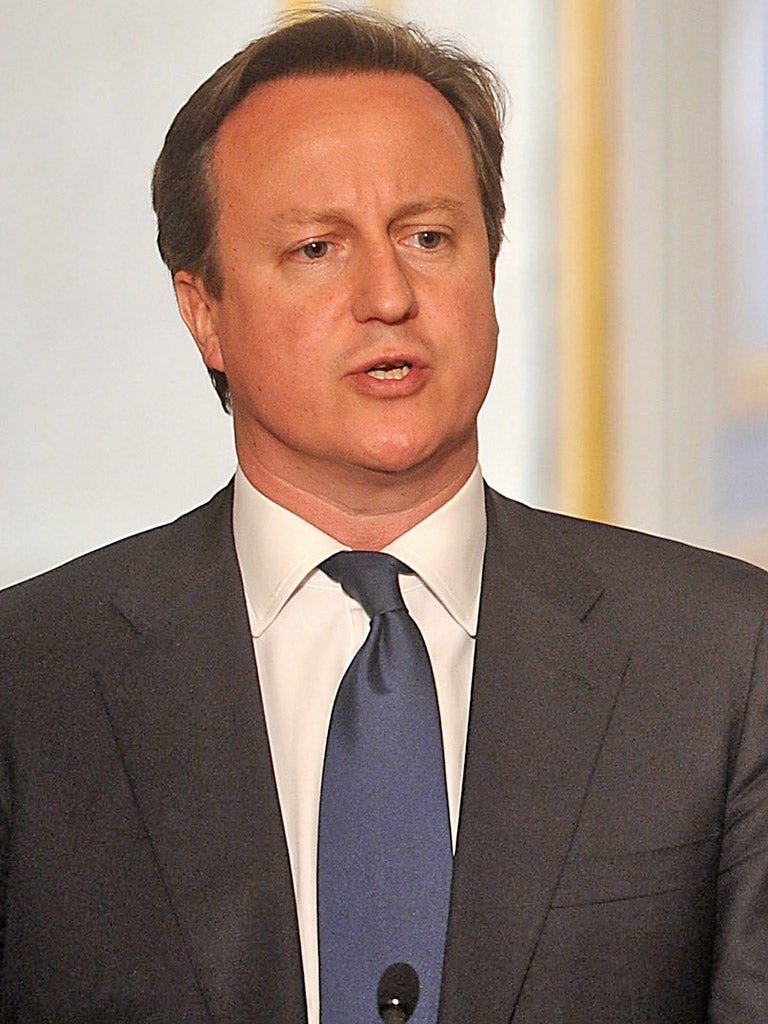David Cameron may be forced to water down key G8 aim over public disclosure of shell companies to stop tax evasion
Prime Minister had promised to fight for transparency over the fake firms that exist only to cover up tax evasion and corruption, but the odds could be stacked against him

David Cameron may be forced to water down his key aim at next week’s G8 summit of world leaders - to open up the “secret” companies used to hide money laundering, tax evasion, corruption and terrorist activity.
The Prime Minister will make a last-minute plea to US President Barack Obama and the Russian President Vladimir Putin to sign up to a landmark pledge to set up a public register showing who owns the tens of thousands of anonymous shell companies. He will hold talks on the issue in London on Thursday with Stephen Harper, the Canadian Prime Minister.
Objections from the United States, Russia and Canada have left Mr Cameron with a dilemma ahead of the summit he will chair at the Loch Erne luxury golf resort in Fermanagh, Northern Ireland. He must decide whether to “go to the wire” and risk failure, or lower expectations and dilute his original plan. The position of the US could be pivotal.
Mr Cameron’s fall-back would be to allow the eight leading economies the freedom to set up a private register of “beneficial ownership”, allowing only law enforcement and tax authorities to know who owns and controls what.
British ministers insist that would still be a big prize because it would allow tax bodies to share information about the secretive companies. But it would disappoint aid groups because it would be harder and more expensive for poor countries to track down companies exploiting their natural resources without paying tax.
Brendan Cox, a spokesman for the IF global hunger campaign backed by 200 pressure groups, said: “The G8 would have a very difficult time justifying a summit that is supposed to focus on transparency coming up with a system of private registers.” He added: “The Prime Minister has chosen the right fight to pick but now he has to win it. A deal on beneficial ownership could be transformative for developing countries and the fight against hunger. The G8 must not fudge the issue next week.”
Adrian Lovett, Europe executive director for the ONE campaign co-founded by the rock musician Bono, said: “David Cameron has staked his leadership credentials on a successful G8. With just a few days to go, success hangs in the balance. The UK Government must continue to lobby its G8 partners, with no let-up in pace or decrease in ambition. G8 partners must decide where they want to be – backing and shaping the transparency revolution or resisting the tide of history. By making the right choice, the G8 can play an important role in enabling developing countries to eliminate extreme poverty.”
Mr Cameron has pledged to champion the “three Ts” – trade, transparency and tax – while Britain holds the G8’s rotating presidency this year. Global terrorism and the crisis in Syria will also be discussed at next week’s summit.
On tax, the Prime Minister is under pressure to “put Britain’s own house in order” by persuading more tax havens under UK control to sign up to global standards on openness so that other countries can hunt tax cheats. Pressure groups estimate this could boost the tax revenues of poor countries by $160bn, more than double the global aid budget.
Mr Cameron may seek to extract pledges from more Britain’s crown dependencies and overseas territories before the summit. The havens include the British Virgin Islands and the Cayman Islands.
On trade, Mr Cameron hopes to use the G8 gathering to launch an ambitious plan for an EU-US trade deal which UK officials estimate could boost the British economy by £10bn a year. But the move could be delayed because France is demanding special protection so it can continue to subsidise its film industry.
Cameron's wishlist
Trade
Mr Cameron would like to formally launch negotiations on a landmark trade agreement between the EU and United States. But the EU is still arguing about the agenda amid French demands that its film industry is protected
Transparency
The Prime Minister wants a “transparency revolution” under which all G8 nations agree to open public registries showing who owns every company. But some countries want to restrict access to tax and law enforcement authorities.
Tax
Mr Cameron wants “a new mechanism to track where multinationals make their money and where they pay their taxes” to respond to rising public concern about the way such companies avoid tax.
Join our commenting forum
Join thought-provoking conversations, follow other Independent readers and see their replies
Comments